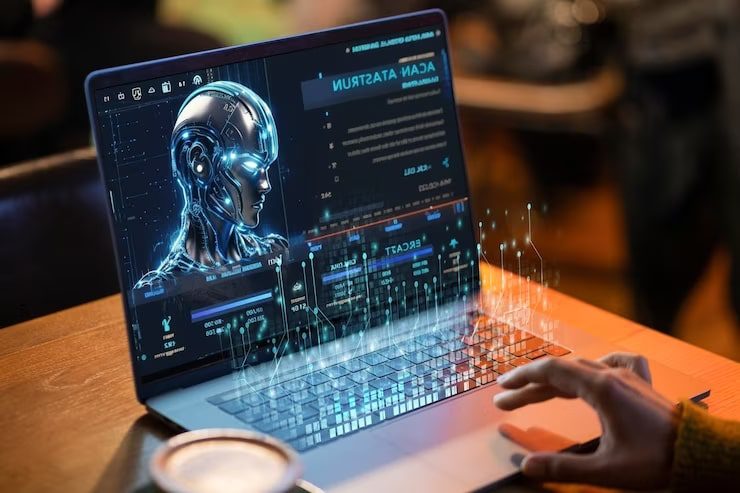Remember those futuristic movies where robots took over the world? Yeah, thankfully, that’s not quite what Artificial Intelligence (AI) is all about. In reality, AI is transforming our world in amazing ways, especially when it comes to streamlining processes and boosting efficiency. Think of it as your digital sidekick, supercharging your productivity and making you look like a total rockstar at work.
But what exactly is AI, and how is it being used to revolutionize processes?
Let’s break it down:
AI: Your Super Smart Sidekick (Without the Need for Coffee):
AI pertains to machines capable of emulating human intelligence. They can learn, adapt, and even make decisions based on data-driven insights. Think of it like having a superpowered brain that can analyze massive amounts of information and identify patterns that us mere humans might miss.
So, how are AI applications making processes smoother than a freshly paved road? Here are a few examples:
Automating the Mundane (Say Goodbye to Repetitive Tasks):
Imagine AI handling all those repetitive tasks that bog you down, like data entry, scheduling meetings, or generating reports. This frees you up to focus on more strategic work that requires your unique human touch.
Customer Service that Doesn’t Make You Want to Pull Your Hair Out (Hello, Chatbots!):
Ever spent ages on hold waiting for customer service? AI-powered customer service chatbots can answer basic questions, troubleshoot issues, and even personalize the customer experience. This frees up human customer service reps to handle more complex inquiries.
Predictive Power (Like a Fortune Teller, But with Actual Data):
AI applications can analyze vast amounts of data to predict future trends, identify potential problems before they occur, and even recommend solutions. This is being used in everything from supply chain management to fraud detection.
Personalized Experiences (Because One-Size-Fits-All Doesn’t Cut It):
From suggesting products you might actually like to recommend the perfect workout routine, AI can personalize experiences across industries. This keeps users engaged and happy, which is a win-win for everyone.
But is AI going to take all our jobs? (Spoiler Alert: Probably Not):
While AI applications are automating some tasks, it’s also creating new ones. The future of work will likely involve humans and AI working together, with AI handling the repetitive tasks and humans focusing on the creative, strategic aspects that require empathy, critical thinking, and good old-fashioned human connection.
So, how can you embrace the AI revolution? (Don’t Get Left Behind):
Embrace Lifelong Learning: The world of AI is constantly evolving, so staying up-to-date with the latest trends and developments is key.
Develop Your Soft Skills: While AI excels at data analysis, it can’t replicate human skills like communication, collaboration, and creativity. Focus on honing these skills to stay relevant in the AI-powered future.
See AI as a Tool, Not a Threat: AI applications are here to help us, not replace us. Embrace its potential to streamline processes, boost efficiency, and free you up to focus on the things you do best.
In the realm of work ahead, collaboration between humans and AI takes center stage. By understanding AI and its capabilities, we can leverage its power to create a more efficient, productive, and ultimately, more awesome working world. So, ditch the fear and get ready to ride the AI wave!
Conclusion
The realm of AI applications is nothing short of a game-changer, reshaping industries and processes with unprecedented efficiency and precision. As we’ve explored throughout this discussion, AI is not just a futuristic concept but a present reality, already making waves across diverse sectors from healthcare to finance, manufacturing to transportation.
With its ability to analyze vast amounts of data, automate tasks, and uncover insights that were once elusive, AI stands as a powerful ally in driving productivity and innovation. Whether it’s optimizing supply chains, personalizing customer experiences, or enhancing medical diagnoses, the potential for AI to revolutionize processes is vast and far-reaching.







